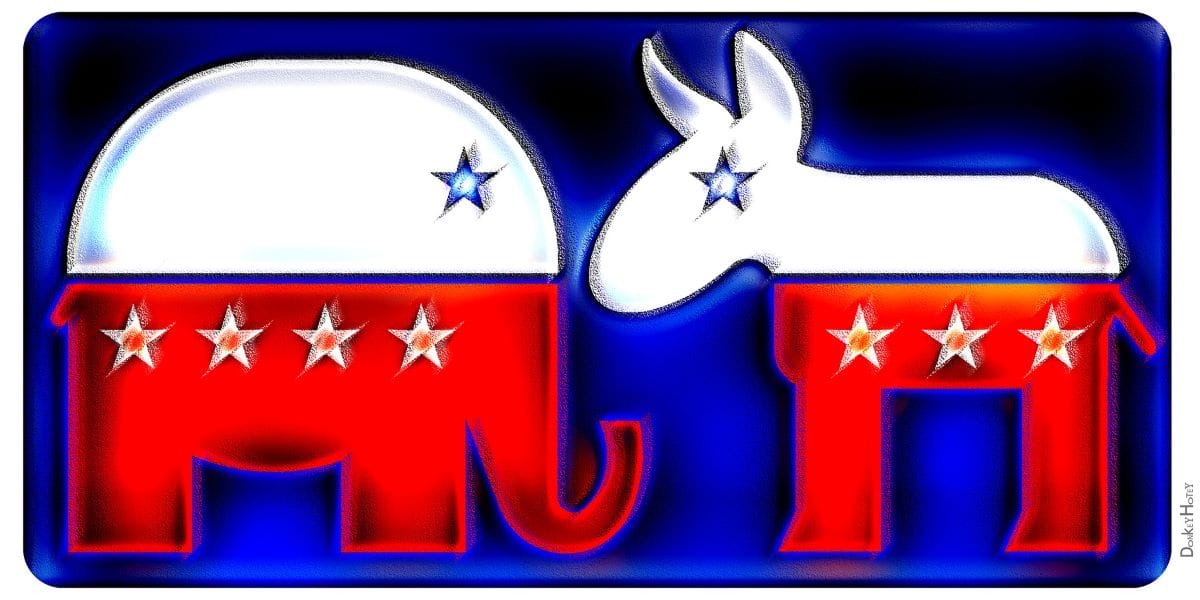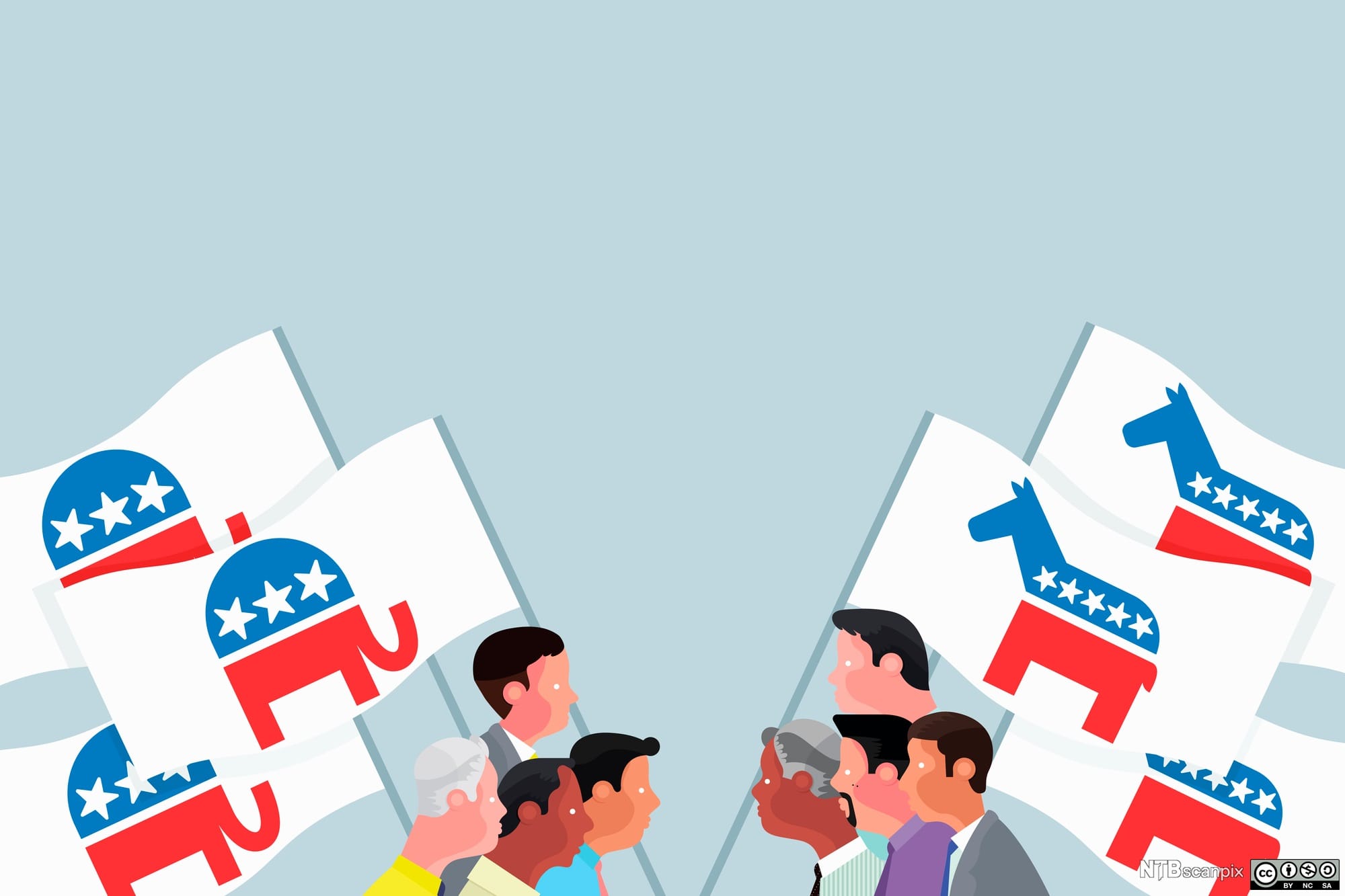Explore the US political landscape shaped by the Republican and Democratic Parties. Delve into their origins, ideologies, and strengths. This blog post analyzes their historical track record, capacity to address issues, and their potential to lead the nation globally in resolving critical challenges. Join us in unraveling the intricacies of these political powerhouses and their impact on the nation’s future.

Outline:
1. Ideological Differences: A breakdown of the core beliefs and values of each party
2. Strengths in Addressing Major Issues: How each party tackles key challenges facing the United States
3. Past Record in Presidential Office: A look at the performance of both parties in the executive branch
4. Leading the U.S. on the Global Stage: Evaluating which party is better positioned to enhance U.S. leadership in global problem-solving
Ideological Differences: A breakdown of the core beliefs and values of each party
The Republican and Democratic parties in the United States have distinct ideological differences that shape their policies and approaches to governance. Understanding these core beliefs and values is essential for grasping the political landscape of the nation.
The Republican Party, often associated with conservative ideologies, emphasizes individual freedoms, limited government intervention, free-market capitalism, and traditional values. Republicans generally advocate for lower taxes, reducing government spending, and a strong national defence.
They prioritize personal responsibility and self-reliance, promoting policies that support entrepreneurship and economic growth.
On the other hand, the Democratic Party leans towards liberal ideologies, focusing on social justice, equality, and government intervention to address societal issues. Democrats advocate for progressive policies such as expanding healthcare access, protecting the environment, and promoting social welfare programs.
They prioritize equality, diversity, and inclusivity, aiming to create a more equitable society. These ideological differences influence how each party addresses major issues facing the United States.
Republicans often prioritize economic growth, national security, and deregulation to stimulate business and job creation.
Democrats, on the other hand, prioritize social welfare, healthcare reform, and environmental protection to address issues of inequality and climate change. In terms of past records in the presidential office, both parties have had successes and challenges.
Republicans are known for their emphasis on fiscal responsibility and strong national defence, with notable Republican presidents including Ronald Reagan and George W. Bush.
Democrats have focused on social welfare programs and healthcare reform, with successful Democratic presidents such as Franklin D. Roosevelt and Barack Obama.
When considering which party is better capable of making the United States a true world leader in resolving major global issues, the answer is complex and subjective. Republicans tend to prioritize American exceptionalism and assertiveness on the global stage, while Democrats emphasize multilateralism and cooperation with international partners.
Ultimately, the effectiveness of each party in addressing global challenges depends on their leadership, policies, and ability to navigate complex international relations.
Strengths in Addressing Major Issues: How each party tackles key challenges facing the United States
The Republican and Democratic parties have distinct approaches when it comes to addressing major issues facing the United States. The Republican Party typically emphasizes limited government intervention, free-market policies, and individual responsibility as the solutions to various challenges.
On the other hand, the Democratic Party tends to advocate for government intervention, social welfare programs, and progressive policies to address societal issues. In terms of strength, the Republican Party is known for its focus on economic growth, job creation, and entrepreneurship.
Republicans often prioritize reducing regulations, cutting taxes, and promoting business-friendly policies to stimulate economic development. They believe in empowering individuals and businesses to drive innovation and prosperity, which can lead to job opportunities and financial stability for Americans.
Conversely, the Democratic Party is recognized for its commitment to social justice, healthcare reform, and environmental protection. Democrats advocate for policies that aim to reduce income inequality, expand access to healthcare, and combat climate change. They prioritize investing in education, healthcare, and infrastructure to create a more equitable society and ensure the well-being of all citizens.
When it comes to the past records of each party in the presidential office, both Republicans and Democrats have had successes and shortcomings in addressing major issues. While Republican administrations have been credited with implementing pro-business policies and fostering economic growth, they have also faced criticism for neglecting social welfare programs and environmental concerns.
Democratic administrations, on the other hand, have made strides in expanding healthcare coverage, advancing civil rights, and promoting environmental sustainability, but they have encountered challenges in managing government spending and responding to national security threats. In considering which party is better capable of making the United States a true world leader in resolving major global issues, the answer may vary depending on one’s perspective and priorities.
Republicans often advocate for a strong national defence, assertive foreign policy, and prioritizing American interests in global affairs. Democrats, on the other hand, tend to emphasize diplomacy, multilateral cooperation, and addressing global challenges such as climate change and human rights.
Ultimately, the ability of the United States to be a true world leader in addressing global issues may depend on a combination of bipartisan cooperation, diplomatic engagement, and a comprehensive strategy that leverages the strengths of both parties to tackle complex challenges on the international stage.
Past Record in Presidential Office: A look at the performance of both parties in the executive branch
The performance of the Republican and Democratic parties in the executive branch has shaped the course of American history. Over the years, both parties have had their share of successes and challenges when it comes to governing the country. The Republican Party has seen a number of presidents in office, including iconic figures such as Abraham Lincoln, Theodore Roosevelt, and Ronald Reagan.
These presidents are often remembered for their strong leadership, conservative principles, and initiatives such as the Emancipation Proclamation, the New Deal, and Reaganomics. On the other hand, the party has faced criticisms for its handling of issues such as environmental protection and social welfare programs.
The Democratic Party, on the other hand, has also had influential presidents in office, such as Franklin D. Roosevelt, John F. Kennedy, and Barack Obama. These leaders are known for their progressive policies, including the New Deal, the Civil Rights Act, and the Affordable Care Act.
However, the party has faced challenges related to national security and economic policies. When it comes to deciding which party is better capable of making the United States a true world leader in resolving major global issues, it is important to consider the strengths and weaknesses of each.
The Republican Party has historically advocated for a strong national defence and free-market economics, while the Democratic Party has focused on social welfare programs and environmental protection. Ultimately, the effectiveness of each party in addressing global challenges will depend on their ability to work together and find common ground on key issues.
Please read my related articles on,
Donald Trump
Joe Biden
Leading the U.S. on the Global Stage: Evaluating which party is better positioned to enhance U.S. leadership in global problem-solving
The Republican Party has traditionally emphasized American exceptionalism and a focus on national sovereignty, often advocating for a more unilateral foreign policy approach. On the other hand, the Democratic Party tends to prioritize multilateralism and international cooperation, placing a greater emphasis on diplomacy and alliances.
When it comes to addressing major global issues, the strengths of each party lie in their distinct philosophies. Republicans are known for their robust stance on national security and defence, advocating for a strong military presence to protect U.S. interests abroad.
Conversely, Democrats often champion human rights, global health initiatives, and environmental protection as key components of their foreign policy agenda. Assessing the past records of presidents affiliated with each party can provide insight into their ability to lead on the global stage.
Republican presidents have historically been associated with assertive foreign policies, such as the Bush administration’s intervention in Iraq and Afghanistan. In contrast, Democratic presidents have sought to engage with the international community through initiatives like the Paris Climate Agreement and the Iran Nuclear Deal.
In determining which party is better suited to make the United States a true world leader in resolving major global issues, it is important to consider the dynamic nature of international relations. Both parties have strengths and weaknesses in their approaches to global challenges, and the effectiveness of their leadership ultimately depends on the specific issues at hand.
Ultimately, the ability to navigate complex international relations and build consensus with global partners will be crucial in establishing U.S. leadership in global problem-solving.
You can also read article
Conclusion:
The Republican and Democratic parties have long been at the forefront of American politics, each with their own set of ideologies and policies that shape the country’s direction. When it comes to positioning the United States as a global leader in addressing major international issues, both parties have distinct strengths and approaches.
The Republican party is often associated with principles such as limited government intervention, free-market economy, and a strong national defence. Republicans prioritize economic growth, job creation, and national security as key pillars of their agenda. Their emphasis on promoting business interests and military strength can be seen as beneficial in positioning the U.S. as a world leader in addressing global challenges.
On the other hand, the Democratic party is known for advocating social welfare programs, environmental protection, and progressive policies aimed at addressing inequality and social justice issues. Democrats prioritize healthcare reform, climate change action, and diplomatic approaches to foreign relations.
Their focus on humanitarian efforts and multilateral cooperation could enhance the U.S.’s standing as a global leader committed to addressing critical international issues. In terms of past records in the presidential office, both parties have had successes and challenges in navigating foreign policy and global affairs.
Republican presidents have implemented policies focused on national security and trade agreements, while Democratic presidents have championed diplomacy, human rights, and international cooperation. Ultimately, the question of which party is better capable of making the United States a true world leader in resolving major global issues is complex and subjective.
Both parties bring unique perspectives and strengths to the table, and a balanced approach that leverages the strengths of each party could be the key to propelling the U.S. as a global leader in addressing critical international issues.


Comments
4 responses to “A Comparative Analysis of the Republican and Democratic Parties”
[…] For more insights on this topic, check out our post on Donald Trump and Republican vs. Democrats […]
[…] additional insights on US Politics, check out our blog post titled “A Comparative Analysis of the Republican and Democratic Parties” for a more detailed […]
[…] You can read more blogs on current affairs Melania Trump, Republican versus Democrats […]
I just like the helpful information you provide on your articles.
I’ll bookmark your weblog and check oonce more here regularly.
I am slightly certain I will be informed many new stuff proper right here!
Best of luck for the following!